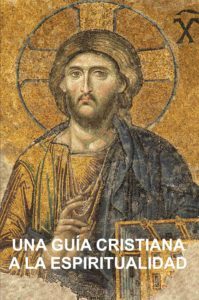Stephen W. Hiemstra's Blog, page 117
May 24, 2021
Forgiveness: Monday Monologues (podcast) May 24, 2021
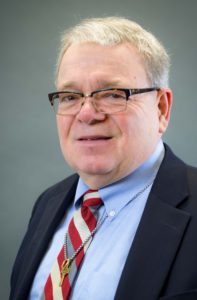
By Stephen W. Hiemstra
This morning I will share a prayer and reflect on Forgiveness. After listening, please click here to take a brief listener survey (10 questions).
To listen, click on this link.
Hear the words; Walk the steps; Experience the joy!
Forgiveness: Monday Monologues (podcast) May 24, 2021
Also see:
Monday Monologue On March 26, 2018
Other ways to engage online:
Author site: http://www.StephenWHiemstra.net,
Publisher site: http://www.T2Pneuma.com.
Newsletter: https://bit.ly/Bright_2021
The post Forgiveness: Monday Monologues (podcast) May 24, 2021 appeared first on T2Pneuma.net.
May 23, 2021
Prayer Day 27
 Available on Amazon.com
Available on Amazon.comBy Stephen W. Hiemstra
Almighty God.
We praise you for creating the heavens and the earth, creating all that is, was, or will ever be, and creating things seen and unseen.
We look on the order and beauty of your creation and just sing your praises.
Grant us strength for each new day to reflect your goodness to those around us in joyful praise.
In the name of the Father, the Son, and the Holy Spirit, Amen.
Prayer Day 27
Also see:
Believer’s Prayer
Other ways to engage online:
Author site: http://www.StephenWHiemstra.net
Purchase Book: http://www.T2Pneuma.com
Newsletter: https://bit.ly/Bright_2021
The post Prayer Day 27 appeared first on T2Pneuma.net.
Oración Dia 27
Por Stephen W. Hiemstra
Dios de toda compasión.
Eres el Alfa y la Omega, el principio y el fin.
Te alabamos por tu ejemplo de humildad.
Te damos gracias por tu sacrificio.
Ayudanos a confesar nuestros pecados y perdonar a los que pecan contra nos.
En el poder de tu Espíritu Santo, abre nuestros corazones, ilumina nuestras mentes, y fortalece nuestras manos en tu servicio.
En el nombre de Jesús oramos, Amén.
Oración Dia 27
Ver también:
Prefacio de La Guía Cristiana a la Espiritualidad
Otras formas de participar en línea:
Sitio del autor: http://www.StephenWHiemstra.net
Comprar Libro: http://www.T2Pneuma.com
Boletín informativo: https://bit.ly/Bright_2021
The post Oración Dia 27 appeared first on T2Pneuma.net.
Gebetstag 27
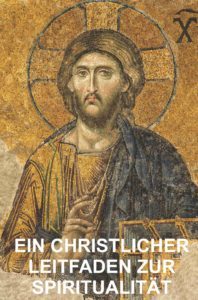
Vor Stephen W. Hiemstra
Gott allen Mitgefühls,
Du bist das Alpha und das Omega, der Anfang und das Ende.
Wir preisen dir für deinen Beispiel der Demut.
Wir danken dir für dein Opfer.
Hilf uns, unsere Sünden zu bekennen und denen zu vergeben, die gegen uns sündigen.
In der Kraft deines Heiligen Geistes, öffne unsere Herzen, erleuchte unseren Geist, und stärke unsere Hände in deinem Dienst.
In Namens Jesu, Amen.
Gebetstag 27
Siehe auch:
Einleitung auf Ein Christlicher Leitfaden zur Spiritualität
Andere Möglichkeiten, sich online zu engagieren:
Autoren Seite: http://www.StephenWHiemstra.net
Herausgeber Seite: http://www.T2Pneuma.com
Mitteilungsblatt: https://bit.ly/Bright_2021
The post Gebetstag 27 appeared first on T2Pneuma.net.
May 21, 2021
You Forgive; We Forgive
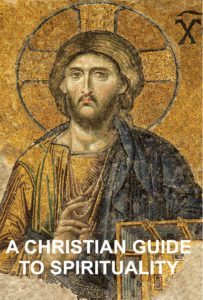
“and forgive us our debts, as we also have forgiven our debtors.” (Matt 6:12)
By Stephen W. Hiemstra
Why forgive? Why be forgiving?
The simple answer is because Jesus says so. Jesus makes a strong statement on forgiveness immediately following the Lord’s Prayer:
For if you forgive others their trespasses, your heavenly Father will also forgive you, but if you do not forgive others their trespasses, neither will your Father forgive your trespasses. (Matt 6:14-15)
The reasoning here is clear—we are to be forgiving people because God has forgiven us. The word for forgiveness in Greek means let go.
The Apostle Peter clarified our obligation to forgive when he asked: “Lord, how often will my brother sin against me, and I forgive him? As many as seven times?” Jesus said to him, “I do not say to you seven times, but seventy-seven times.” (Matt 18:21-22 ESV)—arbitrarily large number that fit the context of Peter’s question [1]. Jesus then goes on to tell the parable of the unforgiving servant (Matt 18:23-35).
The point is that forgiveness aids patience, healing, and redemption.
Forgiveness aids patience. Working with young children or with Alzheimer’s patients involves answering repeated questions or dealing with other annoying behaviors. We often find ourselves working with our children and our parents while we juggle other things—including our own exhaustion. If we can forgive people with special needs, then why is it so hard to forgive normal people who are just annoying? [2] A life with no regrets starts with forgiveness.
Forgiveness heals. For example, forgiveness breaks up what psychiatrists call rumination. Extreme forms of rumination occur when a psyche patient obsesses daily for years about stressful or imagined events from the past. Puffed up like that, rumination distracts the patient from normal emotional development and, subsequently, damages relationships [3]. Because we all ruminate, forgiveness heals by helping us focus on life’s daily challenges rather than on phantoms from the past [4].
Forgiveness is redemptive. The story of Stephen, the first Christian martyr, is a case in point. Just before he died, Stephen prayed: “Lord, do not hold this sin against them.” (Acts 7:60) Saul of Taurus witnessed and approved of Stephen’s stoning. Better known as Paul, Saul later met the risen Christ on the road to Damascus, was baptized, and became the church’s great evangelist. But Paul never forgot Stephen astonishing act of love and linked Stephen to his own call story (Acts 22:20). Were the life and ministry of Paul an answer to Stephen’s prayer?
Forgiveness is so radical, so rare, so redemptive that it reveals God’s presence among us.
[1] Alternative translations, e.g. the New American Standard version, read seventy times seven..
[2] Jerry Bridges (1996, 46) writes: “Do we see them as persons for whom Christ died or as persons who make our lives difficult?” Christ forgave even his tormentors from the cross (Luke 23:34). If he can love and forgive those who murdered him, surely we can forgive annoying people!
[3] One therapy for rumination is to redirect the patient’s focus from the negative memory to a breathe prayer, such as the Jesus prayer. The version of the Jesus prayer that I remember was: Jesus, Son of God, Have mercy on me.
[4] Francis MacNutt (2009, 130) cites four types of healing that we can pray for including: repentance, emotional pain, physical healing, and deliverance—healing from spiritual oppression. When we forgive those who have hurt us, we not only offer them healing, we also release our own pain. Unforgiven sin plagues both parties to the sin.
References
Bridges, Jerry. 1996. The Pursuit of Holiness. Colorado Springs: NavPress.
MacNutt, Francis. 2009. Healing. Notre Dame, IN: Ave Maria Press.
You Forgive; We Forgive
Also see:
Preface to A Christian Guide to Spirituality
Other ways to engage online:
Author site: http://www.StephenWHiemstra.net
Purchase Book: http://www.T2Pneuma.com
Newsletter: https://bit.ly/Bright_2021
The post You Forgive; We Forgive appeared first on T2Pneuma.net.
Perdonas; Perdonamos
“Y perdónanos nuestras deudas (ofensas, pecados), como también nosotros hemos perdonado a nuestros deudores (los que nos ofenden, nos hacen mal).” (Matt 6:12 NBH)
Por Stephen W. Hiemstra
¿Por qué perdonar? ¿Por qué ser una persona que perdona?
La respuesta fácil es porque Jesús lo dice. Jesús hace un comentario fuerte sobre la perdón inmediatamente después el Padre Nuestro:
“`Porque si ustedes perdonan a los hombres sus transgresiones (faltas, delitos), también su Padre celestial les perdonará a ustedes.“Pero si no perdonan a los hombres, tampoco su Padre les perdonará a ustedes sus transgresiones (faltas, delitos).” (Matt 6:14-15 NBH)
La lógica aquí es clara: hemos de ser personas que perdonan porque Dios nos ha perdonado. La palabra por el perdón en griego significa a dejar ir.
El Apóstol Pedro aclaró nuestra obligación a perdonar cuando preguntó: “`Señor, ¿cuántas veces pecará mi hermano contra mí que yo haya de perdonarlo? ¿Hasta siete veces?” Jesús le contestó:“No te digo hasta siete veces, sino hasta setenta veces siete.” (Matt 18:21-22 NBH)—un numero arbitrariamente grande que encaja el contexto de la pregunta de Pedro [1]. Jesús pasa luego a decir la parábola del siervo que no perdonó (Matt 18:23-35).
El punto es que el perdón ayuda a la paciencia, sanación, y redención.
El perdón ayuda a la paciencia. Trabajando con los niños pequeños o con los patentes de Alzheimer consiste en responder preguntas repetidas o que se ocupan de otros comportamientos molestos. A menudo nos encontramos trabajando con nuestros hijos y padres mientras que malabares otra cosas—incluyendo nuestras propias agotamiento. Si somos capaces de perdonar personas con necesidades especiales, entonces por que es tan duro a perdonar a la personas normales que son sólo una molestia? [2] Una vida sin arrepentimientos empieza con el perdón.
El perdón sana. Por ejemplo, el perdón rompe lo que psiquiatras llaman la rumia. Unas formas extrema de ruminación ocurren cuando un patente psíquica obsesiona cotidiana por años sobre eventos estresante o imaginarias del pasado [3]. Exagerado como esto, la ruminación distrae al paciente desde el desarrollo emocional normal y, posteriormente, daños relaciones. Por que todos rumiamos, el perdón nos sana por ayudando nos a centrar por los retos cotidiana y no por las fantasmas del pasado [4].
El perdón trae redención. La historia de Esteban, la primera mártir Cristiana, es una caso en punto. Inmediatamente antes su muerto, Esteban oró: “Señor, no les tomes en cuenta este pecado.” (Act 7:60 NBH) Saulo de Tarso fue testigo y aprobado de la lapidación de Esteban. Conocida mejor como Pablo, Saulo mas tarde se reunió con el Cristo resucitado por la camino de Damasco, fue bautizado, y se convirtió en gran evangelista de la iglesia. Pero Pablo nunca se olvidó el asombroso acto de amor y vinculado a Esteban a su historia de llamada propia (Acts 22:20). ¿Fueron la vida y el ministerio de Pablo una repuesta de la oración de Esteban?
El perdón es tan radical, tan raro, tan redentora que se revele la presencia de Dios entre nosotros.
[1] Traducciones alternativas, por ejemplo una versión en Inglés “New American Standard”, leer setenta veces siete.
[2] Jerry Bridges (1996, 46) escribió: “Vemos los como personas para quien Cristo murió o solo como personas quien hacen nuestras vidas difícil?” Cristo perdono aun sus atormentadores de la cruz (Luke 23:34). Si el pueda ama y perdona ellos quien lo asesinó, entonces podemos perdonar molestas personas!
[3] Una terapia para ruminación es a redirige la atención de la patente más allá la memoria negativa a un oración de respirar, como la oración de Jesús. La versión de la oración de Jesús que recuerdo era: Jesús, Hijo de Dios, ten misericordia de mí.
[4] Francis MacNutt (2009, 130) cite cuatro tipos de curación que podemos orar para incluso: arrepentimiento, dolor emocional, física salud, y liberación de opresión espiritual. Cuando perdonamos ellos quien hemos penar, relevemos también de nuestra pena propia. Los pecados no perdonan plague ambos partidos.
Referencias
Bridges, Jerry. 1996. The Pursuit of Holiness. Colorado Springs: NavPress.
MacNutt, Francis. 2009. Healing. Notre Dame, IN: Ave Maria Press.
Perdonas; Perdonamos
Ver también:
Prefacio de La Guía Cristiana a la Espiritualidad
Otras formas de participar en línea:
Sitio del autor: http://www.StephenWHiemstra.net
Comprar Libro: http://www.T2Pneuma.com
Boletín informativo: https://bit.ly/Bright_2021
The post Perdonas; Perdonamos appeared first on T2Pneuma.net.
Du Vergibst; Wir Vergeben

Von Stephen W. Hiemstra
Und vergib uns unsere Schuld, wie auch wir vergeben unsern Schuldigern. (Matt. 6:12)
Warum vergibt? Warum sei vergebend?
Die einfache Antwort ist weil Jesus es sagt. Jesus gibt unmittelbar nach dem Herrensgebet eine starke Erklärung zur Vergebung ab:
Denn wenn ihr den Menschen ihre Verfehlungen vergebt, so wird euch euer himmlischer Vater auch vergeben. Wenn ihr aber den Menschen nicht vergebt, so wird euch euer Vater eure Verfehlungen auch nicht vergeben. (Matt 6:14-15)
Die Argumentation hier ist klar—wir sollen den Menschen vergeben, weil Gott uns vergeben hat. Das griechische Wort für Vergebung bedeutet Loslassen.
Der Apostel Petrus hat unsere Verpflichtung zur Vergebung klargestellt, als er fragte: “Herr, wie oft muss ich denn meinem Bruder, der an mir sündigt, vergeben? Ist’s genug siebenmal? Jesus sprach zu ihm: Ich sage dir: nicht siebenmal, sondern siebzigmal siebenmal.” (Matt 18:21-22) Dies ist eine willkürlich große Zahl, die zum Kontext von Peters Frage passt. Jesus erzählt dann das Gleichnis vom unversöhnlichen Diener (Matt 18:23-35).
Der Punkt ist, dass Vergebung Geduld, Heilung, und Erlösung fördert. Vergebung hilft Geduld. Die Arbeit mit kleinen Kindern oder mit Alzheimer-Patienten beinhaltet die Beantwortung wiederholter Fragen oder den Umgang mit anderen nervend, störenden Verhaltensweisen. Wir arbeiten oft mit unseren Kindern und unseren Eltern zusammen, während wir mit anderen Dingen jonglieren—einschließlich unserer eigenen Erschöpfung. Wenn wir Menschen mit besonderen Bedürfnissen vergeben können, warum ist es dann so schwer, normalen Menschen zu vergeben, die nur nerven? “Sehen wir sie als Personen, für die Christus gestorben ist, oder als Personen, die unser Leben schwer machen?” (Bridges 1996, 46). Ein Leben ohne Reue beginnt mit Vergebung.
Vergebung heilt. Zum Beispiel bricht Vergebung das auf, was Psychiater Wiederkäuen nennen. Extreme Formen des Wiederkäuens treten auf, wenn ein Psyche-Patient jahrelang täglich von stressigen oder imaginären Ereignissen aus der Vergangenheit besessen ist. So aufgeblasen lenkt Wiederkäuen den Patienten von der normalen emotionalen Entwicklung ab und schädigt damit die Beziehungen. Weil wir alle wiederkäuen, heilt Vergebung, indem wir uns auf die täglichen Herausforderungen des Lebens konzentrieren und nicht auf Phantome aus der Vergangenheit. Vergebung ist eine der vier von Francis MacNutt (2009, 130) zitierten Arten der Heilung (Vergebung, emotionaler Schmerz, körperliche Heilung und Befreiung von spiritueller Unterdrückung).
Vergebung ist erlösend. Die Geschichte von Stephanus, dem ersten christlichen Märtyrer, ist ein typisches Beispiel. Kurz bevor er starb, betete Stephanus: “Herr, rechne ihnen diese Sünde nicht an!” (Acts 7:60) Saulus aus Taurus war Zeuge und billigte die Steinigung von Stephanus. Saul, besser bekannt als Paulus, traf später den auferstandenen Christus auf dem Weg nach Damaskus, wurde getauft und wurde der größte Evangelist der Kirche. Aber Paul vergaß Stephanus nie seinen erstaunlichen Liebesakt und verband Stephanus mit seiner eigenen Anrufgeschichte (Acts 22:20). War das Leben und Wirken von Paulus eine Antwort auf dem Gebet von Stephanus?
Vergebung ist so radikal, so selten, so erlösend, dass sie Gottes Gegenwart unter uns offenbart.
Du Vergibst; Wir Vergeben
Siehe auch:
Einleitung auf Ein Christlicher Leitfaden zur Spiritualität
Andere Möglichkeiten, sich online zu engagieren:
Autoren Seite: http://www.StephenWHiemstra.net
Herausgeber Seite: http://www.T2Pneuma.com
Mitteilungsblatt: https://bit.ly/Bright_2021
The post Du Vergibst; Wir Vergeben appeared first on T2Pneuma.net.
May 20, 2021
46th Annual Marine Corps Marathon now live race
 The 46th Annual Marine Corps Marathon is now going to be run in person on Sunday October 31, 2021.
The 46th Annual Marine Corps Marathon is now going to be run in person on Sunday October 31, 2021.
Go to https://haku.ly/65012e58 via @marine_marathon
#runwiththemarines
Stephen running in 1987: 46th Annual Marine Corps Marathon now live race
46th Annual Marine Corps Marathon now live race
The post 46th Annual Marine Corps Marathon now live race appeared first on T2Pneuma.net.
May 18, 2021
Whelchel Sees Call in Work
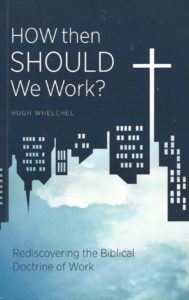
Hugh Whelchel. 2012. How Then Should We Work? Rediscovering the Biblical Doctrine of Work. Bloomington: WestBow Press.
Review by Stephen W. Hiemstra
Mental habits are hard to break. One particularly insidious habit is to worship the “god of the gaps” (gog) rather than the sovereign, Triune God.
Gog worship shows up in several ways. One is the gog worshiped only between 11 and 12 a.m. on Sunday mornings. Another gog appears like insurance—a kind of Aflac god who handles all the problems that we cannot. Still another gog is observed only indirectly (a shadow gog)—whenever anyone expresses a concept of God that is too large (or too inconvenient)—that person is labeled a fanatic or fundamentalist. Gog worshipers are easy to make fun of until one shows up in the mirror: Gog worship is the default setting of the postmodern world—even for an economist turned pastor like myself.
In his book, How Then Should We Work, Hugh Whelchel reminds us that God created the heavens and the earth—everything. Everything is not a spiritual concept; everything includes everything. All that we do—whether inside or outside the church; whether inside or outside the home—should be done in the name of Christ (Colossians 3:17). God is as a powerful worker—he creates; he created everything (7).
Whelchel states his purpose as: to explore the Biblical intersection of faith and work, attempting to understand the difference between work, calling, and vocation and how they should be Biblically applied in our daily lives(5). His book is organized in 6 chapters which focus on carefully defining the concept of call. These chapters are preceded by a forward, preface, and acknowledgments and are followed by a biography of the author, notes, and suggested readings.
In the important area of defining call, Whelchel (75-77) cites 5 calls. He distinguishes the first call, the call to faith in Christ, as primary and cites 4 secondary calls—the call to family, church, community, and vocation.
Whelchel’s (56) concept of Biblical work focuses on 5 concepts, which are:
The Four-Chapter Gospel (creation, fall, redemption, and restoration).The Cultural Mandate (The LORD God took the man and put him in the garden of Eden to work it and keep it (Genesis 2:15 ESV)).The Kingdom of God (being salt and light to the world (Matthew 5:13-14)).Common Grace (seek the welfare of the city where I have sent you into exile, and pray to the LORD on its behalf, for in its welfare you will find your welfare (Jeremiah 29:7 ESV).The Biblical Meaning of Success (as seen in Jesus’ Parable of the Talents in Matthew 25:1-13).Whelchel’s observed in the Parable of the Talents that the reward was the same for the 5-talent or 2-talent servants—we need only worry how to use our talents, not obsess over how many talents we are given.
In his final chapter, Whechel asks: how do we integrate our work and our faith in a way that is pleasing to God? The first of his 9 responses to this question is the most telling: we must rediscover that our primary vocation is the call to follow Jesus (117).
Whelchel holds a master of divinity from Reformed Theological Seminary; he is a former technology worker; and currently serves as executive director of the Institute for Faith, Work, and Economics (www.TIFWE.org) located in McLean, VA. As he claims, Whechel’s book is: a Biblical primer on integrating our faith and work (xxviii). He reviews the literature on vocational calling at great length and why we should care. Missing here perhaps is a link that applies these insights in the era of gog. Still, I found my own faith journey reflected in page after page. Perhaps you will too.
Whelchel Sees Call in WorkOther ways to engage online:Author site: http://www.StephenWHiemstra.netPublisher site: http://www.T2Pneuma.com Newsletter: https://bit.ly/Bright_2021
The post Whelchel Sees Call in Work appeared first on T2Pneuma.net.
May 17, 2021
Daily Bread: Monday Monologues (podcast) May 17, 2021

By Stephen W. Hiemstra
This morning I will share a prayer and reflect on Daily Bread. After listening, please click here to take a brief listener survey (10 questions).
To listen, click on this link.
Hear the words; Walk the steps; Experience the joy!
Daily Bread: Monday Monologues (podcast) May 17, 2021
Also see:
Monday Monologue On March 26, 2018
Other ways to engage online:
Author site: http://www.StephenWHiemstra.net,
Publisher site: http://www.T2Pneuma.com.
Newsletter: https://bit.ly/Bright_2021
The post Daily Bread: Monday Monologues (podcast) May 17, 2021 appeared first on T2Pneuma.net.

